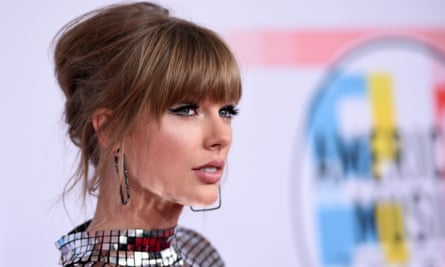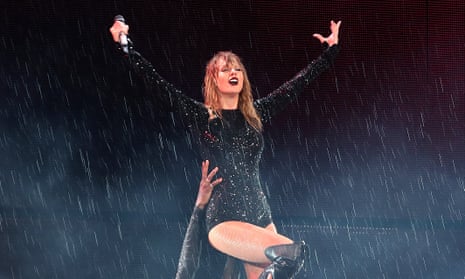Taylor Swift has announced that she is leaving her lifelong record label, Big Machine Label Group (BMLG), to sign with Republic Records and Universal Music Group (UMG). The financial terms of the deal have not been made public.
As part of her new contract, Swift, 28, asked that “any sale of [UMG’s] Spotify shares result in a distribution of money to their artists, non-recoupable”. She said that the label had agreed to this, “at what they believe will be much better terms than paid out previously by other major labels”.
Swift highlighted this as “a sign that we are headed towards positive change for creators – a goal I’m never going to stop trying to help achieve, in whatever ways I can”.
Swift has not single-handedly brought about this change. In March 2018, UMG were the last of the major labels, following Warner and Sony, to commit to sharing any money generated by the sale of its Spotify equity with its artists. In May, independent label rights body Merlin sold its equity stake in Spotify and passed on the proceeds to its members.
UMG is the last of the major label groups to divest itself of its shares in Spotify, a contentious issue given Spotify’s fall in value. The Swedish streaming giant floated on the New York Stock Exchange for the first time this April, opening at a share price of $165. It reached highs of $196.28 in July but has since fallen to $134, representing a fall of more than $11.5bn – or 33%.
Music lawyer Gregor Pryor at Reed Smith said the agreement itself was not radical, but said that “where it does benefit artists undoubtedly is that it’s not recoupable”. This means that any benefits from Spotify sales shares do not count against artists’ existing debts with a label.
What made the deal significant, said Pryor, was that Swift used her leverage to benefit other artists. “Jay-Z did it with Tidal: the way that artists are behaving in a way that is more directed towards furthering their returns versus what the traditional machine – of labels and publishers – might have been entitled to.
“It used to be the case that if you’re an artist on a label, you took your advance and if you were lucky, you got paid. The world is changing very quickly, and part of that is artists taking control of their own business interests.”

In 2014, Swift declined to allow fans to stream her fifth album, 1989, on Spotify or other streaming services. In June 2015, she challenged Apple Music over its decision not to pay musicians and songwriters royalties for music its subscribers listened to during their free three-month trial subscription.
Swift was widely credited with prompting Apple to back down; however the tech company’s retreat was also due to a collective protest by independent labels who said they would not do deals with Apple until it agreed to pay them during the free trials. In June 2017, Swift uploaded her full catalogue of music to streaming services.
Swift also clarified that she will own the master recordings of any music she makes from now on – a lucrative detail assumed to have been a deal-breaker in her relationship with BMLG, which owns the masters to Swift’s first six albums. In August, Variety reported that BMLG, which is distributed by UMG, has derived up to 80% of its revenue from Swift’s music in recent years.
Swift’s deal with BMLG expired on 10 November, the first anniversary of her sixth album, Reputation. She signed to the fledgling label age 15 after founder Scott Borchetta saw her perform at a showcase at the Bluebird cafe in Nashville on 4 November 2004.
Borchetta was about to leave Universal to start his own label and promised her a deal if she waited. “She called me 10 days later and said, ‘I’m waiting for you’,” he told Billboard in 2017. Swift became one of the first signings to BMLG. Her father, Scott Swift, bought a 3% stake in the label.
Swift expressed her “heartfelt thanks” to Borchetta for “believing in me as a 14-year-old and guiding me through over a decade of work that I will always be so proud of”. Borchetta has not commented.
Under the new multi-year agreement, UMG will serve as the exclusive worldwide recorded music partner for Swift and UMG’s Republic Records will serve as her label partner in the US. UMG’s parent company, the French media conglomerate Vivendi, is planning on selling up to half of UMG. Signing Swift “might serve as the catalyst for a disposal of UMG by Vivendi,” said Pryor.
Swift’s Reputation stadium world tour concludes in Tokyo this week. She will play two shows at the Tokyo Dome on 20 and 21 November. Reputation sold 1.9m units in 2017, making it the No 1 album of the year in pure sales terms, and No 3 in album-equivalent streams.
Swift recently made headlines when she endorsed two Democratic candidates in the US midterm elections, after long keeping quiet about her political affiliations. Her support provoked Donald Trump to respond: “I like her music about 25% less now.”
